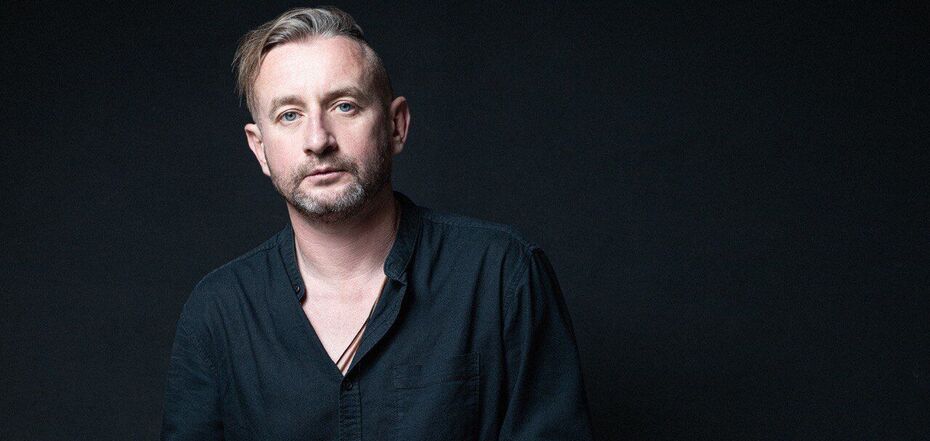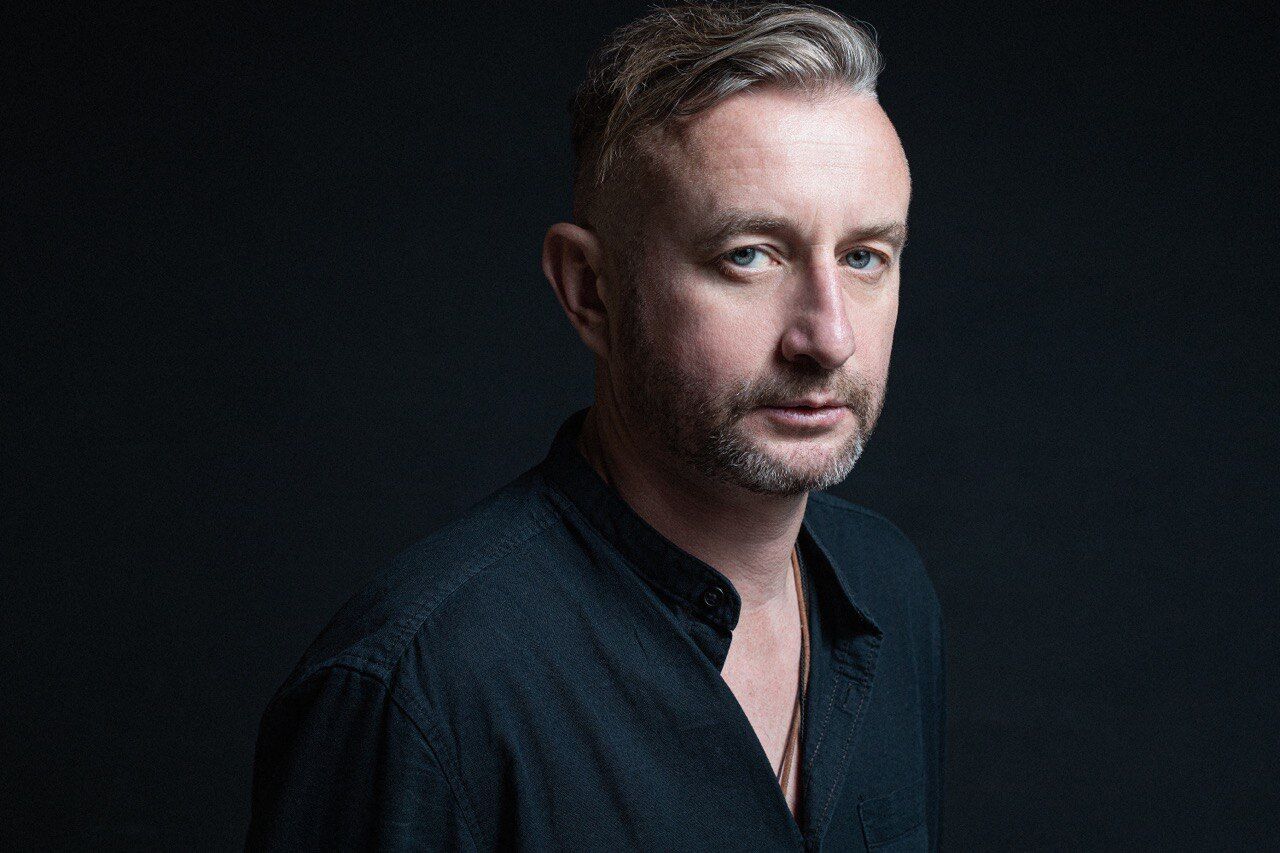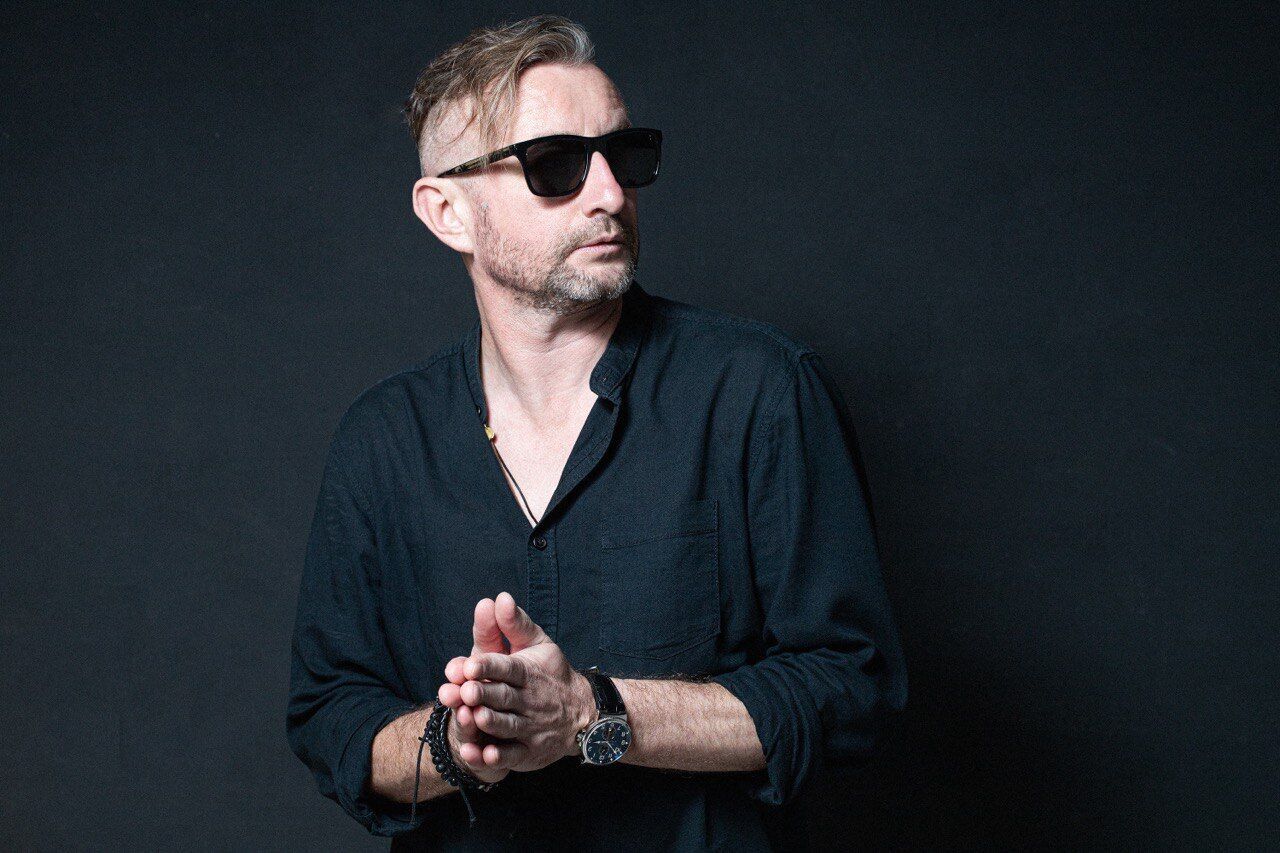Entertainment
Some Ukrainians lived in a matrix written for them by the Russians, while in reality there was a completely different world - Serhii Zhadan
"You either feel like a citizen of your country or not. Somewhere here is the line of understanding unity," says writer Serhii Zhadan.
Kharkiv is his hometown. A year ago, the Kharkiv region was liberated by the Armed Forces of Ukraine. It is the unity that helped the people survive the large-scale invasion.
Serhii felt something similar in February 2022. He says that at first it was difficult to find words and meanings, to write poetry, but then language turned out to be stronger than fear. And culture is now the bridge that can unite.
We talked to Zhadan about how culture helps unite Ukrainians and what unity means to him. The interview is part of the information campaign "Nezlamni bo Yedyni".
"Unity is not about officialdom"
- We are going to talk about the unity of the people. What does unity mean to you? How do you understand this word?
- It's hard to say. It's a question that seems to lie on the surface, but, like most simple things, requires some kind of regular self-talk. It seems to me that in our conditions, unity is about the willingness to protect and help because it is not always a matter of duty.
When IDPs move in, you may or may not accept them. You don't have to, right? But if you accept them, it's about unity. When you help your fellow countrymen with money, things, housing, and other resources, it's also about unity. This is how solidarity works, which arises from a sense of interconnectedness, from the understanding that we are one country, one people. One way or another, this is our common problem. It is an understanding that this situation concerns not only those who hold machine guns, not only those who work in SES, not only those who call themselves official volunteers. This is love, which arises not from compulsion but from feeling.
- You are talking about human unity, but what about a national one?
- National unity is still scaled by personal stories. Not by the initiatives of the Cabinet of Ministers, but by specific voices, faces, fates, and biographies that make up our social fabric. Unity is not about officialdom, not about visual advertising on the streets, but about specific life situations.
This is what we felt at the end of February 2022 when the country woke up to the feeling of a disturbed common anthill, when a stranger's foot stepped in. Ants unite and begin to rebuild their anthill. Not because they love each other so much, perhaps, but from the understanding that they want this anthill to continue to function, to give them a sense of security.
"Culture can be a universal language"
- Ukrainian culture and creativity are on the rise now. People are in demand for it, and that is why it is developing. Can culture and its development help us unite Ukrainians in any way?
- I would advise not to overestimate the possibilities of culture because it is unlikely that it can solve the problems that have been running in our country for decades. Of course, it can suggest something, draw attention to something, but it can hardly stop the war. Nor can it fight corruption, by the way.
But the fact that culture can serve as a universal language, a language understood by everyone, regardless of their region of residence, social status, or economic status, is true. Culture, in my opinion, is about universalism, about a common vocabulary.
- If we go back to the past, we can observe a certain influence of artists on people and even on historical events. In your opinion, what role does culture play for Ukrainians today?
- The role of emotional openness, perhaps. Besides the role of a recorder, reporter, chronicler, culture obviously has a therapeutic function. A lot of people today keep themselves in a state of emotional balance through movies and songs. A person reads a book and somehow comes back to the person they were before February 24. Through music, they try to keep their balance and connect with their emotional experience, their past. This is something that, for example, can often be seen today. A lot of people come to literary evenings and music concerts. It is clear that for these people it is less about entertainment and carefree spirit than about the search for and need for emotional balance and openness. This was certainly not the case 2 years ago. Ukrainian culture has never had such an experience. To what extent Ukrainian culture will cope with this is a big question and a big challenge because culture has really gone beyond its usual limits of functioning and influence.
- What do you mean "if it can cope..."?
- People of art are also disoriented in many ways and are unable to comprehend what is happening, they are not always aware of the possibilities of their reflection. This was especially true in the first months of the big war when the stress was so great that many people started talking from the beginning, looking for their language again. Everyone wanted to say something, to give an answer, to voice their feelings, but often these were inaccurate messages.
"The very thought of writing poetry while bodies were lying on the streets of Kharkiv caused an emotional rejection."
- How did you search for these words? How difficult was it?
- Yes, for the first few months I didn't write anything at all. The very thought of writing poetry while bodies were lying on the streets of Kharkiv caused emotional rejection. Then there was a certain inertia. Time passed and the language revealed its capabilities, showed that it was stronger than fear, and began to return. Look, only a year and a half has passed, and we already have a whole library of books about these terrible events. These are works of fiction, anthologies, reports, and plays... I think it's good. This does not mean that we have begun to make art out of misfortune, that we have begun to use tragedy as material. It rather shows that art finds the strength to continue to be functional and resourceful.
"People are like air to me"
- It's a trivial question, but what helps you to create?
I just communicate with a huge number of people. This is my inspiration. People are like trees, they are like living batteries. If you have established these links of energy exchange, if you understand what you are doing, if you are able to share, you are able to perceive the energy of others. People are like air. The process of breathing is mutual: you breathe in, you breathe out. It's a mutual exchange. If you share, you get. Everything is fair.
"The line of understanding unity: you either feel like a citizen or not"
- You communicate a lot with other writers, musicians, and participate in various events where there are also many artists. Speaking about these cultural circles (musicians, writers, creative people), how do they understand the unity of the nation? Have they discussed this, perhaps heard some opinions?
- I don't think that the opinion of the cultural environment is very different from the opinion of the IT community or clothing sellers. Many social mechanisms have changed now. First of all, you either feel like a citizen of this country or not. This is where the line of understanding unity is drawn. If you feel involved in your country, in this time, in this great trouble, then you probably understand the value of unity. And if you're still in the situation of February 23, then for you, nothing much has changed. This is also a strange thing. We talk in terms of the plural: we, they, us... forgetting that these moments of transformation, moments of change, internal processes are actually very personal. The question of identity within a region, city, or neighborhood hardly changes. It is obvious that changes occur on a personal level.
"Culture is about individualism"
- I heard this phrase from a military man, "The Russians did with their war what we could not do during our independence." I understand that this is about our cohesion. Or is culture still a factor that can unite?
- Culture certainly belongs to these factors. Politics is too conflictual, it is our minefield, and it will take a long time to clear it. Our history is also complex and traumatic, and it can also become a field for fights and disputes. But culture, given its universality, can really unite.
Regardless of whether you live in Kramatorsk or Kalush, there is a school program that includes the writer Khvylovyi, you read him and decide whether you accept him or not. The same applies to music, cinema, and theater, which can also be perceived regardless of your regional origin, language/cultural/educational background.
Let me repeat: culture, due to its subjectivity, non-compulsory nature, and fundamental emotional openness, can become a bridge where politics or ideology or religion cannot.
Culture, at the same time, is about individualism. People don't go to screenings in neighborhoods. Families, companies, military units do. But it's still not about accepting this or that aesthetic. This is what makes culture beautiful.
It's about individualism, about a person choosing certain criteria in literature, music, or cinema. That is, it assumes that a person is endowed with views, beliefs, values, that he or she is conscious, capable of asking questions, and has critical thinking.
- What would you wish Ukrainians who read this interview?
- I would simply wish them to read more. Today it is really an opportunity to discover many important things. Today, many Ukrainians are discovering the world of Ukrainians, which two years ago was largely a ghetto world, and they had to find an entrance, go through certain codes, filters, and passwords. Just like in this restaurant ("Ostannia Barykada" - Ed.), where we are now. Previously, only those who knew the password - a quote from Shevchenko - were allowed in. Now everyone is allowed in. For me, this is a positive and important metaphor for everything that is happening in Ukraine right now.
"The problem is not Pushkin's fairy tales, but that Putin's tanks are behind them"
- This is basically about the status of culture. Older and younger people are discovering classical literature, music, and rewatching Ukrainian films because they don't know who Mykolaichuk, Dovzhenko, and Stupka are. That the movie "Chasing Two Hares" was primarily in Ukrainian. They are rediscovering everything for themselves and realizing that they lived outside of the space that was not voiced for them.
They lived in a matrix written for them by Russians, where everything was Russian. At the same time, there was a completely different world based on Ukrainian identity landmarks and markers. It's very interesting, though sometimes painful.
It is still difficult for someone to give up Pushkin's fairy tales, but one way or another, this is an irreversible process. The problem is not in the fairy tales, but that Putin's tanks are behind them. This is obvious. Russian culture works for the Russian idea. And there is no place for us in the Russian idea.
Therefore, "study, my brothers, think, read!" Discover Ukraine!
"Nezlamni bo Yedyni" is a communication campaign that shows the strength of spirit and indomitable nature of Ukrainians. The Center for Strategic Communications and Information Security, together with the United States Agency for International Development (USAID), show how important it is to maintain unity when Russia tries to quarrel and divide Ukrainians with its disinformation every day.





























